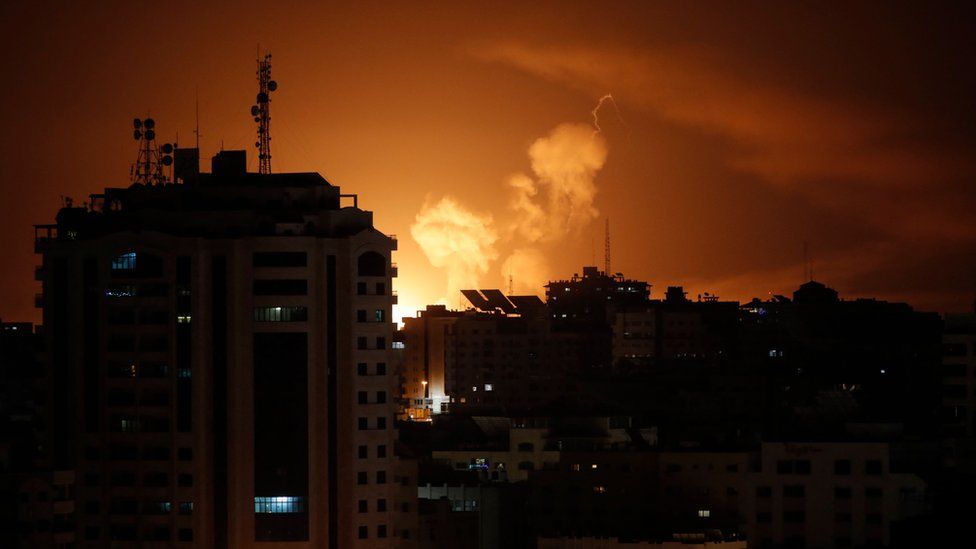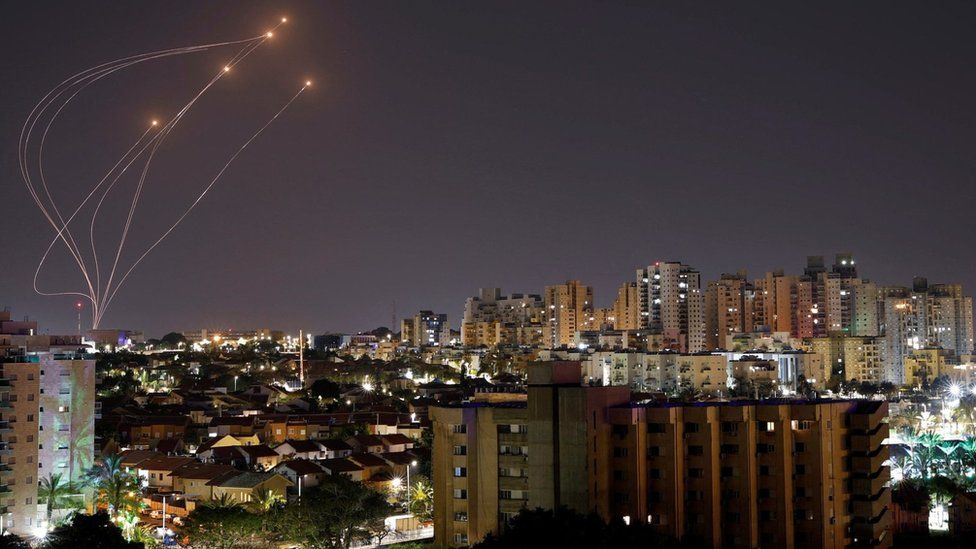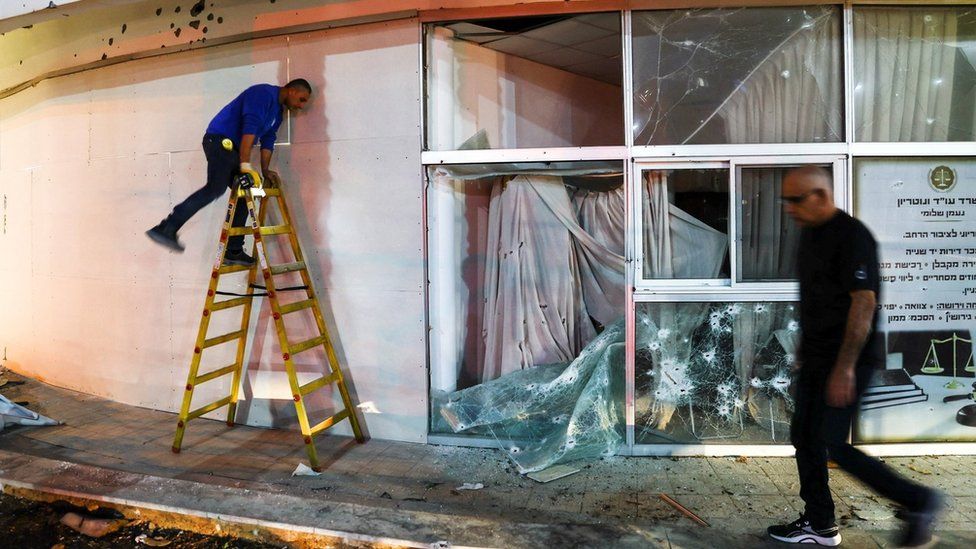
This article is more than
2 year old
The Israeli military has carried out air strikes on targets belonging to the Palestinian militant group Hamas in southern Lebanon and the Gaza Strip.
The military said the attacks were a response to a barrage of 34 rockets fired from Lebanon into northern Israel on Thursday, which it blamed on Hamas.
Militants in Gaza fired dozens more rockets after the strikes began.
Tensions are high following two nights of Israeli police raids at the al-Aqsa mosque in Jerusalem earlier this week.
The raids triggered violent confrontations with Palestinians inside the mosque, which is Islam's third holiest site, and caused anger across the region.
Hamas did not say that it fired the rockets from Lebanon, which was the biggest such barrage in 17 years.
But its leader Ismail Haniyeh, who was visiting Beirut at the time, said Palestinians would not "sit with their arms crossed" in the face of Israeli aggression.

Overnight, there were two or three explosions around the Rashidieh Palestinian refugee camp, 5km (3 miles) south of the Lebanese coastal city of Tyre.
Lebanese media also reported strikes on the outskirts of the village of al-Qulaila, another 4km further south. Photographs appeared to show that a small bridge was destroyed.
The Israel Defense Forces (IDF) tweeted that its warplanes struck "terrorist infrastructures belonging to Hamas" in Lebanon.
"The IDF will not allow the Hamas terrorist organization to operate from within Lebanon and hold the state of Lebanon responsible for every directed fire emanating from its territory," it warned.
Hamas said it strongly condemned "the blatant Zionist aggression against Lebanon in the vicinity of Tyre at dawn today [Friday]".
In Gaza, more than 10 Hamas targets were hit, including a shaft for an underground site to construct weapons, three other weapons workshops and an underground "terrorist tunnel", the IDF said.

During the strikes, at least 44 rockets were fired from Gaza towards southern Israel, Israeli media reported.
Most were intercepted by Israel's Iron Dome defence system or fell in open areas, but at least one house in the city of Sderot was hit.
There were no immediate reports of any casualties from either the strikes or the overnight rocket fire.
A man was injured by shrapnel in northern Israel on Thursday afternoon as a result of the rocket fire from Lebanon. The Israeli military said 25 of the 34 rockets were intercepted, but that five hit Israeli territory.
In the north-western border town of Shlomi, the rockets left craters in the road, and damaged vehicles and a bank. A car was also damaged in the village of Fassuta.
Prime Minister Benjamin Netanyahu promised that Israel's response would "exact a significant price from our enemies".

An Israeli military spokesman said it believed Hamas was behind the attack and that it was possible the militant group Islamic Jihad was also involved.
He added that they assumed the Lebanese militant group Hezbollah, which fought a month-long war with Israeli in 2006, knew about the attack, and they suspected there was also Iranian involvement.
The attack came hours after Hezbollah, which controls much of southern Lebanon, said it would support "all measures" taken by Palestinians "to protect worshippers and the al-Aqsa mosque and to deter the enemy from continuing its attacks".
Lebanon's Prime Minister, Najib Mikati, condemned any military operations in its territory that "destabilise the situation".
The Lebanese Army said the rockets were launched in the vicinity of al-Qulaila and two other border villages near Tyre - Maaliya and Zibqine.
It posted photos of launchpads and a number of unlaunched rockets that it said troops had found in al-Qulaila, Zibqine and further east, near Marjayoun.